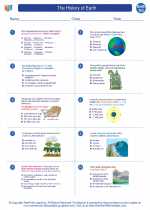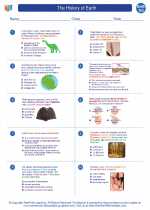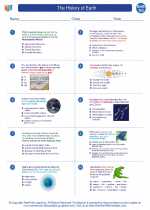What is Soil?
Soil is the top layer of the Earth's surface that provides a medium for plant growth and serves as a habitat for many organisms. It is a complex mixture of minerals, organic matter, water, air, and countless organisms, all of which interact to support life.
Formation of Soil
Soil is formed through the process of weathering, which involves the breakdown and decomposition of rocks and minerals. This can occur through physical, chemical, and biological processes. Over time, the accumulation of organic matter and the activities of soil organisms contribute to the development of soil horizons.
Components of Soil
Soil is composed of four main components:
- Mineral particles: These are the inorganic components of soil, including sand, silt, and clay. The proportions of these particles determine the texture of the soil.
- Organic matter: This includes plant and animal residues at various stages of decomposition. It provides nutrients for plants and contributes to soil structure.
- Water: Soil serves as a reservoir for water, which is essential for plant growth and supports various soil organisms.
- Air: Pores in the soil allow for the exchange of gases, including oxygen and carbon dioxide, which are important for root respiration and the activity of soil organisms.
Soil Horizons
Soil horizons are layers of soil that form as a result of the interactions of soil-forming processes over time. The main horizons are:
- O horizon: This is the organic layer composed of decomposing organic matter.
- A horizon: This is the topsoil, rich in organic matter and mineral particles.
- B horizon: This is the subsoil, where minerals leached from the A horizon accumulate.
- C horizon: This is the parent material from which the soil has developed, often partially weathered rock.
Importance of Soil
Soil is vital for sustaining life on Earth. It supports plant growth, which in turn provides food for humans and animals. Soil also plays a crucial role in the water cycle, nutrient cycling, and carbon storage. Additionally, it serves as a habitat for a diverse array of organisms, contributing to biodiversity.
Human Impact on Soil
Human activities, such as agriculture, urbanization, and deforestation, can lead to soil degradation through erosion, compaction, and loss of fertility. Understanding the importance of soil and practicing sustainable soil management is essential for ensuring the health and productivity of this valuable resource.
[Soil] Related Worksheets and Study Guides:
.◂Earth Science Worksheets and Study Guides High School. The History of Earth

 Worksheet/Answer key
Worksheet/Answer key
 Worksheet/Answer key
Worksheet/Answer key
